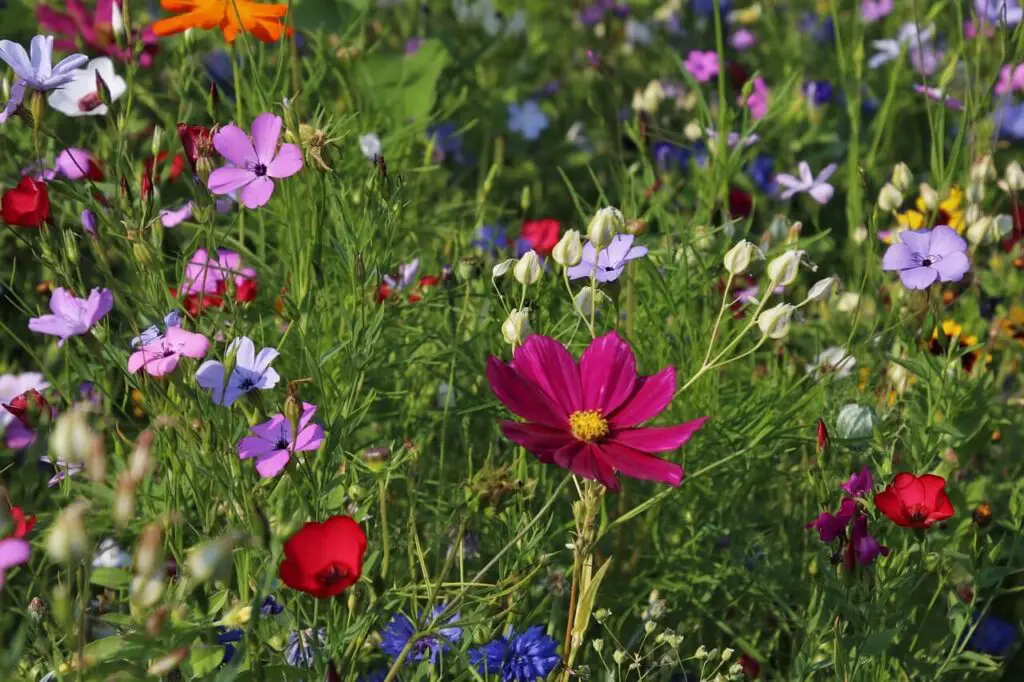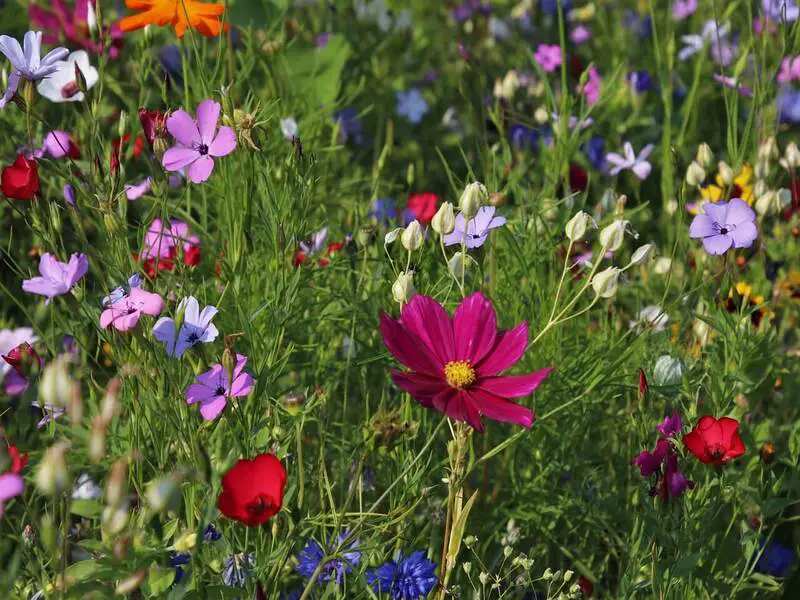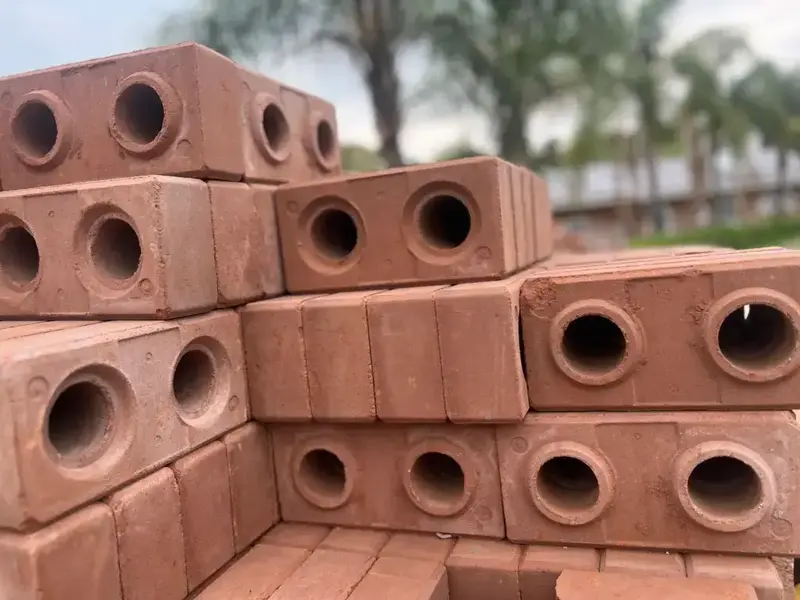Sustainable gardening is a holistic approach to gardening that aims to reduce the negative impact on the environment and create a self-sustaining ecosystem. The principles of sustainable gardening are essential to achieve a healthy garden that thrives with minimal intervention. In this article, we will discuss the principles of sustainable gardening and how to implement them in your garden.
What is Sustainable Gardening?
Sustainable gardening is a gardening approach that focuses on creating a garden that is environmentally sustainable. It involves using practices that promote biodiversity, reduce waste, and conserve resources. By utilizing sustainable gardening practices, gardeners can reduce their carbon footprint and create a garden that is both productive and environmentally friendly.
One of the main principles of sustainable gardening is conserving resources, including water and energy. This can be achieved through the use of drought-tolerant plants and water-efficient irrigation systems. Collecting rainwater and using it to irrigate plants is also a common sustainable gardening practice.
Another important aspect of sustainable gardening is reducing waste. Gardeners can reduce waste by composting organic materials and using natural pest control methods instead of chemical pesticides. They can also avoid the use of chemical fertilizers, which can be harmful to the environment and wildlife.
Promoting biodiversity is another key principle of sustainable gardening. This involves planting a variety of plants, including native species, to create a healthy and diverse ecosystem. Gardeners can also create habitats for wildlife by adding bird feeders, birdhouses, and nesting boxes.
Using renewable resources is also an important part of sustainable gardening. This can be achieved by using solar-powered lights and water features and by using organic materials such as compost and mulch.

The Benefits of Sustainable Gardening
Sustainable gardening offers numerous benefits, both for the environment and the gardener. By adopting sustainable gardening practices, gardeners can reduce their environmental impact while also creating a beautiful and healthy garden. Here are some of the key benefits of sustainable gardening:
- Reducing the use of synthetic inputs: Sustainable gardening minimizes the use of synthetic inputs such as chemical fertilizers and pesticides. This helps to reduce the negative impact of these inputs on the environment, including soil and water contamination.
- Promoting soil health and fertility: Sustainable gardening practices focus on building healthy soil by using natural soil amendments and techniques that enhance soil structure and biology. This creates a fertile and productive soil that supports healthy plant growth.
- Conserving water: Sustainable gardening techniques help to conserve water by using efficient watering practices and selecting plants that are adapted to the local climate. This reduces the amount of water needed to maintain a healthy garden.
- Enhancing biodiversity: Sustainable gardening promotes biodiversity by selecting plants that attract beneficial insects and wildlife. This helps to create a healthy and diverse ecosystem that supports a wide range of plant and animal life.
- Creating a healthy and safe environment: By minimizing the use of synthetic pesticides and fertilizers, sustainable gardening helps to create a safe and healthy environment for humans and animals. This reduces the risk of exposure to harmful chemicals and promotes a healthy and natural garden environment.
Overall, sustainable gardening offers a wide range of benefits, from reducing environmental impact to promoting healthy soil and biodiversity. By adopting sustainable gardening practices, gardeners can create a beautiful and sustainable garden that supports a healthy and vibrant ecosystem.
The Principles of Sustainable Gardening
The principles of sustainable gardening are focused on creating a healthy ecosystem that is self-sustaining and requires minimal intervention. The following are the key principles of sustainable gardening:
Soil Health
Soil health is essential to sustainable gardening. Healthy soil contains a diverse and abundant population of microorganisms that promote plant growth and suppress diseases. Sustainable gardening practices that enhance soil health include:
- Adding organic matter, such as compost and cover crops, to improve soil structure and fertility.
- Avoiding the use of synthetic fertilizers that can harm soil biology.
- Mulching to reduce soil erosion and conserve soil moisture.
- Rotating crops to prevent soil-borne diseases and pests.
Water Conservation
Water is a precious resource, and sustainable gardening practices aim to conserve water by using efficient watering techniques and selecting plants that are adapted to the local climate. Some water conservation strategies include:
- Mulching to reduce evaporation and conserve soil moisture.
- Collecting rainwater to use for watering plants.
- Drip irrigation or soaker hoses to deliver water directly to plant roots and reduce water loss.
- Selecting plants that are adapted to the local climate and require minimal watering.
Plant Selection
Selecting the right plants for your garden is essential to sustainable gardening. Choosing plants that are adapted to the local climate and soil conditions can reduce the need for synthetic inputs, such as fertilizers and pesticides. Some key plant selection criteria for sustainable gardening include:
- Native or adapted plants that require minimal watering and maintenance.
- Plants that attract beneficial insects and wildlife to promote biodiversity.
- Planting a diverse range of crops to reduce the risk of pest and disease outbreaks.
- Avoiding invasive plant species that can harm the local ecosystem.
Integrated Pest Management
Integrated pest management (IPM) is a holistic approach to pest management that focuses on preventing pest problems rather than using chemical pesticides. Sustainable gardening practices that promote IPM include:
- Planting a diverse range of crops to reduce the risk of pest outbreaks.
- Encouraging natural predators and beneficial insects, such as ladybugs and bees, to control pests.
- Using physical barriers, such as row covers and netting, to protect plants from pests.
- Practicing crop rotation to prevent the buildup of pest populations.
Composting and Recycling
Composting and recycling are essential practices for sustainable gardening. Composting converts organic waste, such as food scraps and yard waste, into a nutrient-rich soil amendment that can improve soil fertility and structure. Recycling materials, such as plastic and paper, reduces waste and promotes environmental sustainability. Some key composting and recycling practices for sustainable gardening include:
- Composting food scraps and yard waste to create a nutrient-rich soil amendment.
- Using recycled materials, such as plastic and paper, for mulch and other garden applications.
- Avoiding the use of synthetic pesticides and fertilizers that can harm the environment.
How to Implement Sustainable Gardening Principles
Implementing sustainable gardening principles requires a holistic approach that considers the entire garden ecosystem. The following are some key strategies for implementing sustainable gardening practices:
Soil Improvement Techniques
Improving soil health is essential to sustainable gardening. Some key soil improvement techniques include:
- Adding compost and other organic matter to improve soil structure and fertility.
- Avoiding the use of synthetic fertilizers that can harm soil biology.
- Mulching to reduce soil erosion and conserve soil moisture.
- Rotating crops to prevent soil-borne diseases and pests.
Water Conservation Strategies
Conserving water is critical to sustainable gardening. Some key water conservation strategies include:
- Collecting rainwater to use for watering plants.
- Using drip irrigation or soaker hoses to deliver water directly to plant roots and reduce water loss.
- Mulching to reduce evaporation and conserve soil moisture.
- Selecting plants that are adapted to the local climate and require minimal watering.
Plant Selection Criteria
Choosing the right plants for your garden is essential to sustainable gardening. Some key plant selection criteria for sustainable gardening include:
- Native or adapted plants that require minimal watering and maintenance.
- Plants that attract beneficial insects and wildlife to promote biodiversity.
- Planting a diverse range of crops to reduce the risk of pest and disease outbreaks.
- Avoiding invasive plant species that can harm the local ecosystem.
Integrated Pest Management Methods
Integrated pest management is a holistic approach to pest management that focuses on prevention and control without using chemical pesticides. Some key IPM methods for sustainable gardening include:
- Planting a diverse range of crops to reduce the risk of pest outbreaks.
- Encouraging natural predators and beneficial insects to control pests.
- Using physical barriers to protect plants from pests.
- Practicing crop rotation to prevent the buildup of pest populations.
Composting and Recycling Practices
Composting and recycling are essential practices for sustainable gardening. Some key composting and recycling practices for sustainable gardening include:
- Composting food scraps and yard waste to create a nutrient-rich soil amendment.
- Using recycled materials, such as plastic and paper, for mulch and other garden applications.
- Avoiding the use of synthetic pesticides and fertilizers that can harm the environment.
Conclusion
In conclusion, sustainable gardening is a holistic approach to gardening that focuses on creating a self-sustaining ecosystem that requires minimal intervention. The principles of sustainable gardening include soil health, water conservation, plant selection, integrated pest management, and composting and recycling. Implementing sustainable gardening practices requires a holistic approach that considers the entire garden ecosystem. By adopting sustainable gardening practices, you can create a healthy and sustainable garden that benefits both the environment and the gardener.




